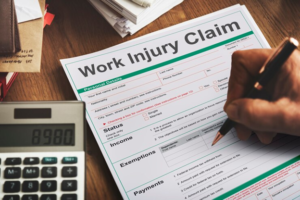
As a property owner, whether you’re managing a commercial space or simply renting out a residential property, it’s essential to be aware of workers’ compensation laws. These regulations aren’t just for large businesses; they can impact anyone who hires workers, including property owners who may engage contractors, maintenance crews, or other service providers. Understanding workers’ compensation is vital for protecting both your interests and those of the workers you employ.
Understanding Workers’ Compensation: A Basic Overview
Workers’ compensation is a system designed to provide financial and medical benefits to employees who are injured or become ill as a direct result of their job. It serves as a safety net, ensuring that workers receive the care they need without having to go through lengthy and complicated legal battles.
For property owners, this can be particularly relevant. If you hire workers to perform tasks such as repairs, maintenance, or renovations on your property, you need to understand your responsibilities under workers’ compensation laws. In some cases, you may even be held liable for injuries sustained by workers on your property.
This is where the expertise of workers compensation lawyers Gold Coast can be invaluable. These legal professionals can help you navigate the complexities of workers’ compensation laws, ensuring that you’re fully compliant and protected against potential claims.
Why Workers’ Compensation Matters to Property Owners
Many property owners mistakenly believe that workers’ compensation only applies to businesses with full-time employees. However, this is a common misconception. If you hire anyone to perform work on your property, including independent contractors, you could be held responsible for their injuries under certain circumstances.
For example, if a contractor or laborer is injured while working on your property and they are not covered by their own workers’ compensation insurance, you could be liable for their medical expenses and lost wages. This could result in significant financial loss and legal complications.
Ensuring that any workers you hire are properly covered by workers’ compensation insurance is a critical step in protecting yourself. This not only shields you from potential lawsuits but also helps maintain a safe and secure working environment on your property.
Who Needs Workers’ Compensation Insurance?

Determining who needs workers’ compensation insurance can be confusing, especially for property owners who might only hire workers on an occasional basis. Generally speaking, workers’ compensation insurance is required for any business or individual who hires workers, regardless of the nature of their employment.
However, the specifics can vary based on local laws and the type of work being performed. For instance, in many regions, independent contractors are not required to carry workers’ compensation insurance, but property owners who hire them might still be held liable for their injuries.
It’s crucial to check the workers’ compensation requirements in your area and consult with a legal expert if you’re unsure. Workers compensation lawyers on the Gold Coast can provide detailed advice tailored to your specific situation, ensuring that you’re fully aware of your responsibilities and obligations.
Common Misconceptions About Workers’ Compensation
There are several misconceptions about workers’ compensation that can lead to confusion and potential legal issues for property owners. Let’s clear up some of these myths:
- Myth: Workers’ Compensation Is Only for Full-Time Employees
Many property owners believe that workers’ compensation is only necessary for businesses with full-time employees. In reality, anyone who hires workers, even on a temporary or part-time basis, may need to provide workers’ compensation coverage.
- Myth: Independent Contractors Don’t Need Workers’ Compensation
While it’s true that independent contractors may not be required to carry workers’ compensation insurance, property owners could still be held liable for their injuries. Always verify that contractors have their own coverage before allowing them to work on your property.
- Myth: Workers’ Compensation Doesn’t Apply to Small Jobs
Even if you’re hiring someone for a small, one-time job, workers’ compensation laws may still apply. It’s better to be safe than sorry, so ensure that any worker on your property is properly covered.
- Myth: Workers’ Compensation Is Expensive and Unnecessary
While workers’ compensation insurance does come with a cost, the potential financial and legal repercussions of not having coverage far outweigh this expense. Investing in proper coverage is a smart and necessary decision.
The Role of Property Owners in Ensuring Workers’ Safety
Beyond the legal requirements of workers’ compensation, property owners have a moral and ethical responsibility to ensure that their property is a safe environment for workers. This involves more than just providing insurance coverage; it also means actively maintaining the property to prevent accidents and injuries.
Some steps property owners can take to ensure worker safety include:
- Conduct Regular Inspections: Regularly inspect your property for potential hazards, such as loose flooring, exposed wiring, or structural damage. Address these issues promptly to prevent accidents.
- Communicate Safety Guidelines: Clearly communicate any safety guidelines or procedures to workers before they begin their tasks. Ensure they are aware of any potential hazards on the property.
- Provide Necessary Equipment: Ensure that workers have access to the necessary safety equipment and tools to perform their tasks safely. This might include helmets, gloves, or other protective gear.
- Monitor Work Conditions: Keep an eye on the work being done on your property. If you notice unsafe practices or conditions, address them immediately.
What to Do If a Worker Is Injured on Your Property
Despite your best efforts to maintain a safe environment, accidents can still happen. Knowing what to do if a worker is injured on your property is crucial for minimizing legal and financial repercussions.
- Provide Immediate Assistance: Ensure that the injured worker receives immediate medical attention. This might involve calling emergency services or providing first aid until help arrives.
- Document the Incident: Record the details of the incident, including the time, location, and nature of the injury. Take photos if possible, and gather statements from any witnesses.
- Report the Incident: Depending on your local laws, you may be required to report the incident to the relevant authorities or your insurance provider. Make sure you understand your reporting obligations.
- Consult with a Lawyer: If the injury is serious or if you’re unsure of your legal responsibilities, it’s wise to consult with a workers compensation lawyer. They can guide you through the process and help protect your interests.
The Benefits of Consulting with a Workers Compensation Lawyer
Navigating workers’ compensation laws can be challenging, especially for property owners who may not be familiar with the intricacies of these regulations. Consulting with a workers compensation lawyer, particularly one familiar with the laws in your region, can offer numerous benefits:
- Expert Guidance: A lawyer can provide expert advice on your legal obligations and help you understand the specific requirements for your property.
- Risk Mitigation: By ensuring that you’re fully compliant with workers’ compensation laws, a lawyer can help you avoid potential lawsuits and financial penalties.
- Peace of Mind: Knowing that you have a legal expert on your side can provide peace of mind, allowing you to focus on managing your property without the worry of legal complications.
Conclusion: Protecting Your Property and Your Workers
Understanding workers’ compensation is a critical aspect of property ownership. By ensuring that you’re fully informed and compliant with the relevant laws, you can protect both your property and the workers who contribute to its upkeep. Whether you’re hiring a contractor for a small repair or managing a large-scale renovation, taking the time to understand your responsibilities under workers’ compensation laws is an investment in the safety and success of your property.
If you have any doubts or need assistance, don’t hesitate to reach out to workers compensation lawyers near you for professional guidance. Their expertise can help you navigate this complex area of law, ensuring that you’re fully protected and prepared for any eventuality.






